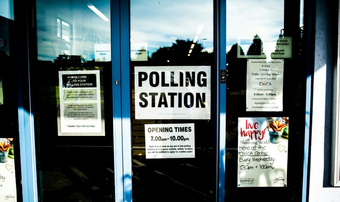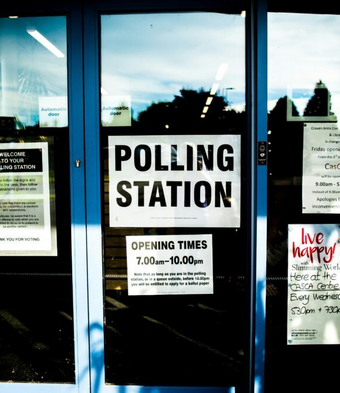The Freebie Frenzy

With an embattled Chief of Staff in Downing Street, tales of excessive gifts and hospitality, and questionable conflicts of interest, you might be forgiven for thinking we were in the dying days of Boris Johnson’s premiership rather than a mere 2 and a bit months into Keir Starmer’s. However, we are where we are.
Despite Starmer’s protestation to have done nothing wrong (he has declared everything he has been given even if late on one occasion), that hasn’t stopped a public pile-on and mounting pressure for further investigation.
Nevertheless, quite simply put, the optics for Starmer and his new government are dreadful.
Times are hard for many and the stories have helped fuel a narrative that the tough choices facing the country seemingly don’t apply to Labour. Upholding the two-child benefit limit, withdrawing the winter fuel payment - regardless of your thoughts on these individual decisions – give the appearance that the government is tightening (or keeping tight) public spending. Yet at the same time, Labour ministers have received thousands of pounds worth of clothing, several more thousands used for a birthday party, and trips to New York, not to mention tickets to Arsenal games and Taylor Swift concerts.
What change?
Moreover, Starmer put himself forward as the change candidate...and more than a change in political agenda. He was to usher in a change of ethos, a change in the way the government would work, and a change in the way our political leaders would carry themselves. Starmer and his pals routinely stood up and denounced Tory sleaze. It was the cornerstone of their attack lines.
A few months on, public standards look much the same. And speaking frankly, it is riling to watch a party and a leadership that routinely called out the Tories on such matters seemingly equally up to their neck in it.
People are angry and dejected. Starmer’s personal popularity rating has plunged, Labour is losing votes, and Starmer is being denounced by fans at his beloved Arsenal. For an electorate already disenchanted and cynical, such moves only serve to reinforce the message that all MPs are corrupt, out of touch, and simply in it for themselves. That is not to say I myself believe that to be true, but regardless of the truth of the matter, each one of these stories fuels a pre-existing narrative, especially in our social media age.
Trigger-happy political backstabbing
Looking at the bigger picture, the politics of this issue doesn’t sit particularly well with me. Charges of corruption and malpractice are all too easily thrown around today. Our political class has shown no qualms about jumping on any and every minor transgression, or perceived transgression, for the sake of political gain.
For example, during Rishi Sunak’s time as PM, there was a ridiculous farce about whether or not he had worn a seatbelt whilst filming a promotional clip in his car. As I wrote at the time, he clearly should have worn a seatbelt (and the police duly fined him), but given the scale of the challenges facing us, such a minor infringement hardly warrants the witch hunt it became.
Similarly, despite being awash in their own scandals, the Tories stuck the boot into Angela Rayner, prompting a police investigation into the sale of her council flat. You could argue there was genuine public interest in the matter, but it seemed a rather convenient attack line for a party who were themselves mired in tales of incompetence and depravity.
Accountability and standards are important, but far too often this smacks of opportunism: kicking your opponent while they’re down to gain a political advantage. But it ultimately does nobody any good. It weakens public trust, it undermines confidence in government, and it wastes an inordinate amount of time on cheap political stunts and handwringing.
Don’t misunderstand me, malpractice matters, and accountability and standards are vitally important.
Yet, I can’t help but feel cynical and almost bored each time the parties urge their minions to grab the pitchforks – it just looks like stones being thrown in glass houses for short term political gain. It is far easier to remind everyone how bad your opponents are than it is to try to figure out a substantive plan to improve the lot of the nation.
Yet, having reprimanded the political class, I am far more interested in what this ongoing saga reveals about us, the British public, because for me that is the unexamined side of this story…
Why is it that hypocrisy rankles so much?
Of all the scandals we have had in recent years, hypocrisy is the one that consistently seems to cut through in the media and with the public. We seem to like nothing more than a gotcha story, someone caught in their own hypocrisy, doing something they have lambasted others for, or perhaps even transgressing rules and policies they themselves wrote.
Exhibit A: Matt Hancock, who was forced to resign from his job as Secretary of State for Health not for his affair with his Special Advisor, but because said affair breached the Covid rules he made law.
Don’t get me wrong, hypocrisy is bad. It leaves a sour taste in the mouth. No one likes to see someone preaching what they don’t practice, but why is it that hypocrisy, more so than other moral transgressions, is so often the red line?
Could it be that short of any collective moral standing, we find particular pleasure in seeing someone fail at their own self-created moral code? Could it be that someone else falling short of the standard makes us feel better about our own falling short, our own failures and excesses? Could it be that without a moral law to direct our steps, we inherently resent those who put their head above the parapet to try and chart a way through the choppy seas of moral relativism?
And where is the forgiveness or leniency? Being quite frankly honest, I don’t mind too much if Keir Starmer gets free tickets to see Taylor Swift or if someone gives him a nice suit. Other countries pay their politicians far better than we do, and in what other job would you be expected to tolerate endless abuse and criticism, routine transgressions into your private life, and constant scrutiny with rarely as much as a thank you? Has the scrutiny come from asking appropriate questions, or has it been a mean-spirited witch hunt?
I find it hard to watch the public pile-on when, if we take the Bible seriously, we know that hypocrisy, the line of good and evil, the falling short of the standard, is a problem inherent to each one of us. We are all flawed beings, I routinely don’t do what I said I would do, nor live up to the standards I expect of myself, and on my bad days I proactively seek the opposite.
Who amongst us is clean? Again, I am not opposing the idea that those in public leadership ought to be subject to higher standards, but I think if we are honest, we get the politicians we deserve.
For how often are we ourselves willing to bend the rules to get ahead? How often are we willing to ignore common decency for personal gain? How often do we turn a blind eye to one thing or another to make our lives easier?
Perhaps the hard truth is we have a defunct political class because we have a defunct moral code and practice ourselves? After all, we elect our politicians from among our own ranks. They are not some alien species parachuted in from Mars. They are human just like you and just like me.
Why is it that we seem to have nothing substantive to say beyond legalism and optics?
For all that optics matter – the Bible calls on Church leaders to be above reproach for instance - why is that optics seem to matter more than substantive moral reality? Why is it that we have nothing more meaningful to say on such things other than tighten up the laws, bring in a new ethical body of oversight, and start a new inquiry?
There is no point having the best laws in the world if your heart does not desire to follow them, or if you simply follow the letter of the law, rather than its spirit. What good does it do for people to simply want to be seen to do the right thing, more than they want to actually do the right thing.
This is something Jesus so starkly exposes in his Sermon on the Mount. You might be like the rich young ruler and believe you live a morally upstanding life, but where is your heart? What is it directed towards?
In 1644, Samuel Rutherford wrote a blistering critique of the king called ‘Lex Rex’, meaning the law is king, in which he argued (a revolutionary idea at the time) that the king is not above the law, but ought to be subservient to it like everyone else.
With that I firmly agree: our political leaders ought to be subject to the same laws as everyone else and adhere to even higher standards due to the responsibilities and privileges of their office. All governments will ultimately be held accountable by Jesus Christ: none have a remit to use their God-given office to be a law unto themselves.
Starmer and his team keep appealing to the code and the law as proof that they have done nothing wrong. In a world of moral relativism, of ‘you do you’ and ‘be true to yourself’, there is no morality except for the one we create for ourselves as defined in law.
But what if those laws can’t quite capture the wholeness of what it means to live rightly in this life, to honour neighbour and creator, and to act justly, love mercy, and walk humbly with our God? For on that day, our political leaders will not merely be able to justify themselves by saying that they followed our limited man-made laws: rather, they will be held accountable to the law of God. God’s justice covers every thought, word and motivation.
The danger when we read a story like the one this week is to think that what we need is more law and tougher rules. What we need more than anything else is a change of heart. The law may show us – in part – what is right and wrong. But to truly live, the way we were created to, we need the one who can write His law on our hearts...






